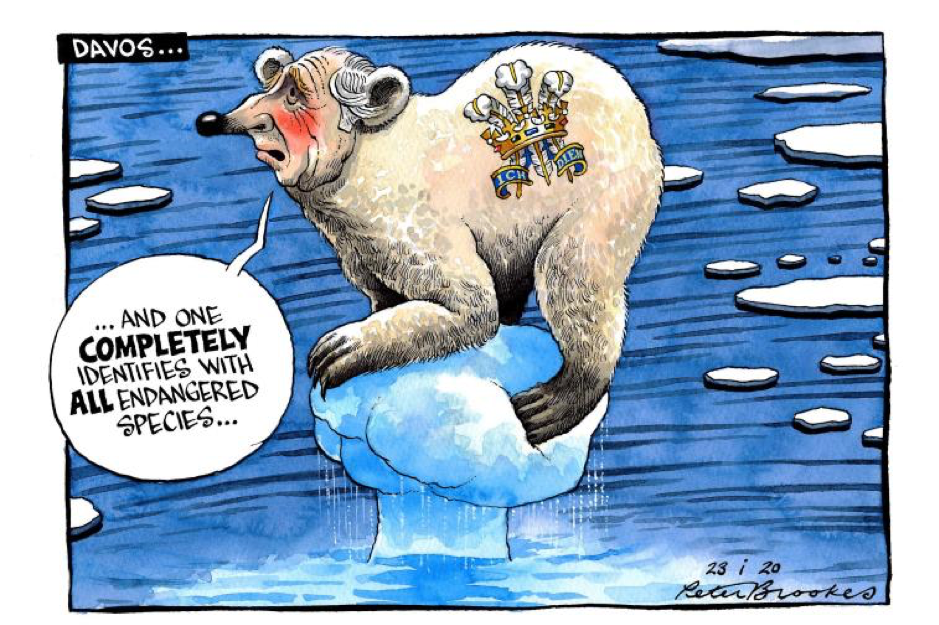- Charlotte Street Partners

- Jan 23, 2020
- 5 min read
Updated: Jan 24, 2020
23rd January 2020
Written by Tom Gillingham, Associate Partner
Edited by Harriet Moll, Creative Director
Good morning,
Recent media coverage suggests London is on the ropes, but are predictions of its demise greatly exaggerated? Yesterday, a Sutton Trust report concluded that the UK’s most populous city is “essentially off-limits to ambitious people from poorer backgrounds who grow up outside the capital.” Meanwhile, Conservative policymakers’ eyes are trained firmly northward to new lands of opportunity. London has always been a city defined by its youth; those who have grown up there and those who pour in, starry-eyed and determined from the rest of the UK, and the world. So the twin issues of spiralling affordability and safety - combined with a changing political focus - could be signs that the capital’s allure is cooling. As the city of my 20s, I have huge affection for the place that I no longer call home, despite the challenges that came with actually living there, but it does feel like the capital’s domestic stock has fallen of late. It would certainly seem a rash of new anti-London planning has gripped the government. HS2 could be canned, the Lords could abscond to York and Tory HQ could relocate to a new location in the North or the Midlands. Despite the blue wave that swept most of England, the core of the capital remained steadfastly red. The city also has a strident Labour mayor, and the government could simply decide Conservative votes can be won elsewhere. Could, though, is still the operative word. But let's not get ahead of ourselves - London retains an aura of inescapability that is hard to shake. Just ask my friends who repeat that they’d ‘love to get back to Edinburgh one day’ with a sincerity that doesn’t quite reach their eyes. Something is definitely shifting in terms of the balance of power in the UK, but it feels too early to bet against the ever-adaptable Big Smoke.
News
Amidst the spread of a new strain of Coronavirus, Wuhan, city of eleven million people in China, has temporarily closed its public transport as it tries to halt the outbreak. So far there are more than 500 confirmed cases and 17 people have died. UN experts are demanding an immediate investigation by the US into the apparent hacking of Jeff Bezos’ phone. The billionaire owner of the Washington Post was targeted with spyware from a WhatsApp message sent from an account linked to Saudi Arabia’s crown prince, Mohammed bin Salman. It is believed the intrusion was a bid to silence reporting on the murder of Saudi journalist Jamal Khashoggi. The UK risks a post-Brexit rift with the US (£) if the prime minister pushes ahead with a levy on large technology companies. The contentious tax is a 2 per cent sales duty on companies such as Facebook and Google, starting from April amid concerns that they are “undermining trust and confidence in our international system”.
Business and economy
The stock market value of electric car maker Tesla has passed $100bn for the first time (£), following a sustained rally that has seen the company’s share price rise 125 per cent in the past three months. The dramatic run has pushed Tesla’s valuation to 98 times its expected profits this year, prompting some analysts to warn that the shares will eventually fall back in line with other car company valuations. Online fashion retailer ASOS beat analysts' expectations for sales growth in the key Christmas trading period, with retail sales rising by 20% in the four months to 31 December. This was ahead of predicted growth of 15%. Tesco Bank has announced 100 new technology jobs at its Edinburgh base, with a further 20 jobs created in Newcastle. The company is recruiting test, software and systems engineers, systems architects, solution designers, project managers, and IT and business analysts.
Columns of note
Expressing a perhaps unpopular opinion, Martin Kettle suggests we need to start talking about Brexit again. Writing in the Guardian, he says that the Brexit process will only really start after 31 January and that a series of big decisions will be coming our way almost immediately after. Not talking about it and grappling to understand it could lead to missed opportunities on important issues like the role of parliament, refugee children and employment rights. Writing in the Spectator, Isabel Hardman ponders Lisa Nandy’s possible route to victory in the Labour Leadership contest. She suggests the current outsider is relying on a second-vote strategy, that could pay off as the contest wears on.

Markets
What happened yesterday?
The FTSE 100 finished Wednesday down 0.51% at 7,571.92, despite positive signs from the Confederation of British Industry (CBI). The CBI’s manufacturing optimism gauge rose to +23 in January from -44 in October. Elsewhere, data from the Office for National Statistics showed that public borrowing eased in December, confounding analyst expectations. Public sector net borrowing (excluding public sector banks) was £4.8bn in December, around £0.2bn less than December 2018. Analysts had been preparing for a figure in the region of £5.3bn. At the close of US trading the Dow Jones Industrial Average was down 0.03% at 29,186.27, while the S&P 500 was up 0.03% at 3,321.80 and the Nasdaq Composite was just in the green after a rise of 0.14% at 9,383.77. The pound was up 0.6% on the euro at €1.18, and up 0.61% against the dollar at $1.31.
What's happening today?
Interims
CPL Ilika plc Ncc
Trading Announcements Computacenter Gear4music Pphe Hotel
AGMs
Abstd Equityinc Baillie Geu Baring Emerging Countryside Properties Equat Palm Oil Hyve Group Rdi Reit
Int. Economic Announcements (12:45) ECB Interest Rate (EU) (13:30) Initial Jobless Claims (US) (13:30) Continuing Claims (US) (16:00) Crude Oil Inventories (US)

Did you know?
The average age for attendees at Davos is 54 for men, and 49 for women.

Comments